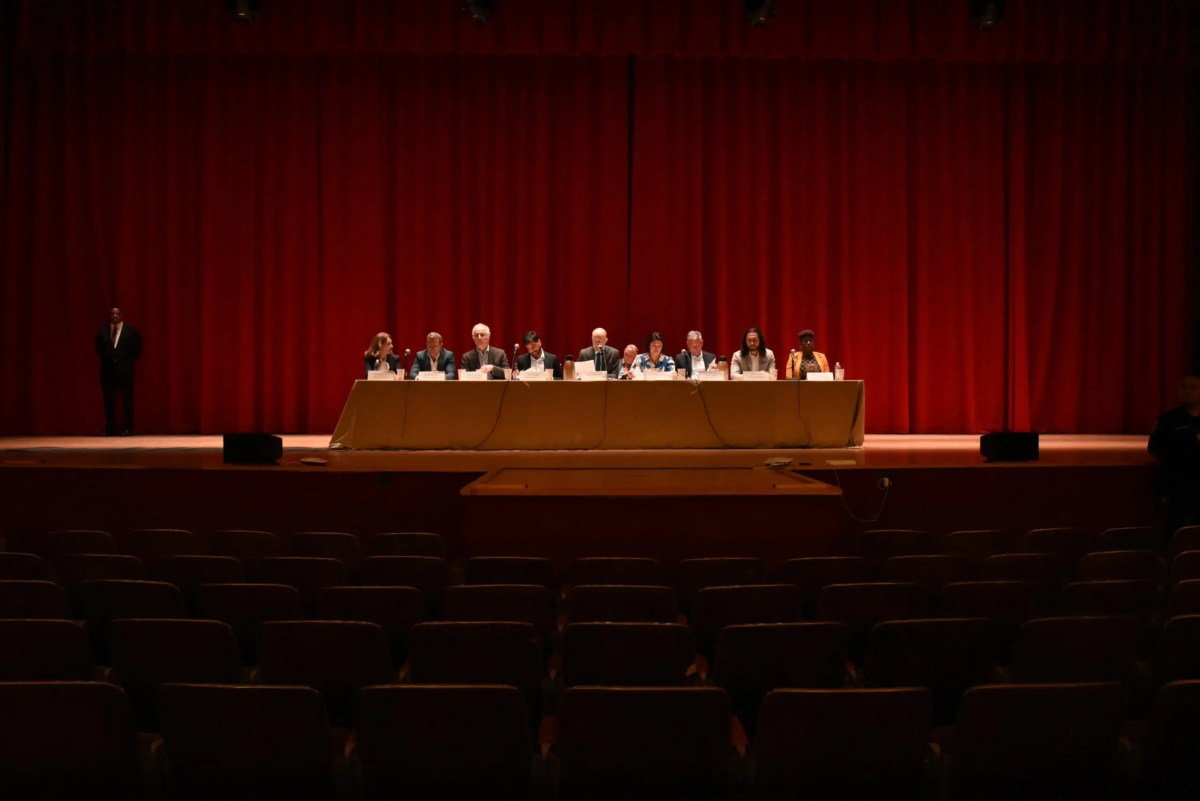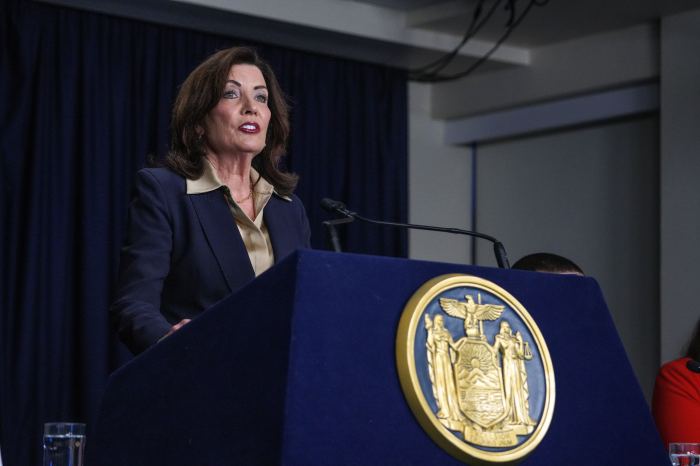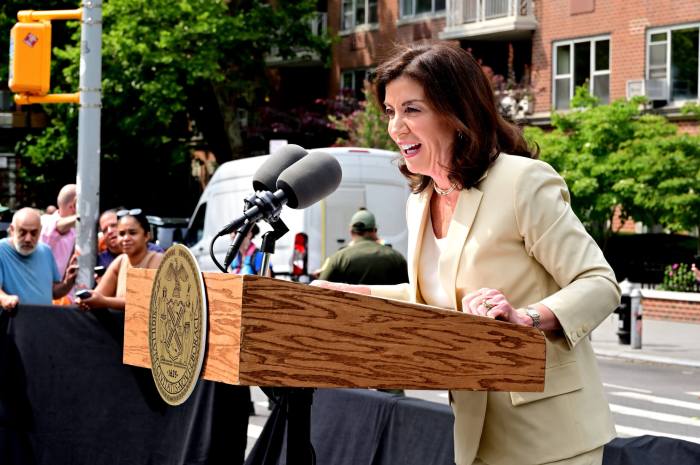A New York City board will vote Monday night on how much to raise rents this year for the Big Apple’s approximately 1 million stabilized tenants — a hike that could reach as high as 6.5%.
The nine-member panel, known as the Rent Guidelines Board, will hold its final vote to determine the amount in rent increases stabilized tenants will see this coming year during a June 17 meeting. The proceeding, which is open to the public, will take place at Hunter College’s Assembly Hall at 7 p.m.
The RGB’s final meeting comes after it approved preliminary rent increase ranges of 2% to 4.5% for one-year leases, and 4% to 6.5% for two-year leases, during a separate vote in late April.
The final increases have historically fallen somewhere within the preliminary ranges.
The panel advanced the ranges despite the objections of its two tenant members, who walked out of the meeting in protest. They argued raising the rent for regulated apartments for the third year running is untenable for low-income tenants already struggling to make their monthly payments.
The board’s tenant members are hardly alone. Earlier this week, 25 state lawmakers sent a joint letter to the board’s chair — Nestor Davidson — urging the panel to either institute a rent freeze or approve the lowest possible increase.
“With homelessness and housing evictions increasing dramatically, and the cost of living soaring, rent hikes harm tenants and threaten our economy by driving out low and middle-income New Yorkers,” the letter reads. “We urge the Rent Guidelines Board to consider a rent freeze rather than risk sending more families into homelessness and poverty.”
The letter was co-led by Assembly Members Harvey Epstein (D-Manhattan) and Karines Reyes (D-Bronx).
On Monday morning, the Legal Aid Society issued a similar letter calling for a rent freeze.
“The reports produced by the Board since March have proven that any increase on rent for this vulnerable population would not only be unnecessary, but would betray the stated purpose of the Board, which is to protect stabilized tenants from exorbitant, needless rent hikes,” said Adriene Holder, chief attorney of the Civil Practice at The Legal Aid Society. “Despite the disappointing outcome of the preliminary vote, the Board still has the opportunity to do right by the more than one million New Yorkers who reside in rent-stabilized units. Ahead of tonight’s vote, we call on the Board to listen to the cries of these already-struggling tenants who could be facing imminent evictions and displacement should an increase be passed and vote for an outright rent freeze on all stabilized units.”
Tenant advocates also pushed for a rent rollback during the board’s penultimate hearing in Manhattan earlier this week before staging a dramatic walkout, according to a published report. Landlords at that meeting countered that they needed the increases to keep their properties in good condition.
While Mayor Eric Adams appointed all of the board’s members, he has always maintained that he does not get involved in their decisions. However, the way each RGB votes usually reflects the priorities of the mayor who appointed them.
Following the preliminary vote, Adams indicated that a 6.5% increase on two-year leases goes “far beyond what is reasonable to ask tenants to take on at this time.” But he said the board must also consider the interests of landlords, making sure they collect enough rent to maintain their buildings.
Monday’s vote will likely mark the third time stabilized tenants have seen their rents go up since Adams took office two and a half years ago. Last year, the board advanced increases of 3% for one-year leases. It divided two-year lease increases into two rounds: 2.75% in the first year and 3.2% of the increased amount in the second.
The recent trend differs greatly from Adams’ predecessor Bill de Blasio, who appointed a board that voted to either keep rents frozen or increase them a minimal amount for multiple years.
With reporting by Robert Pozarycki
Read more: UWS Snake Saga: NYPD’s Unusual Rescue




































